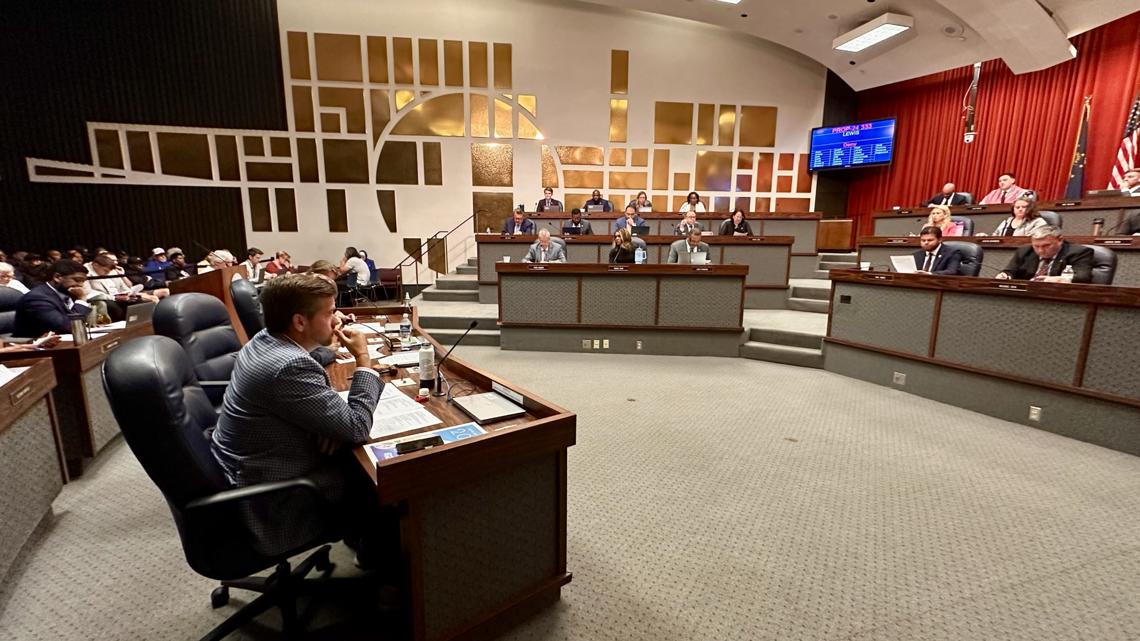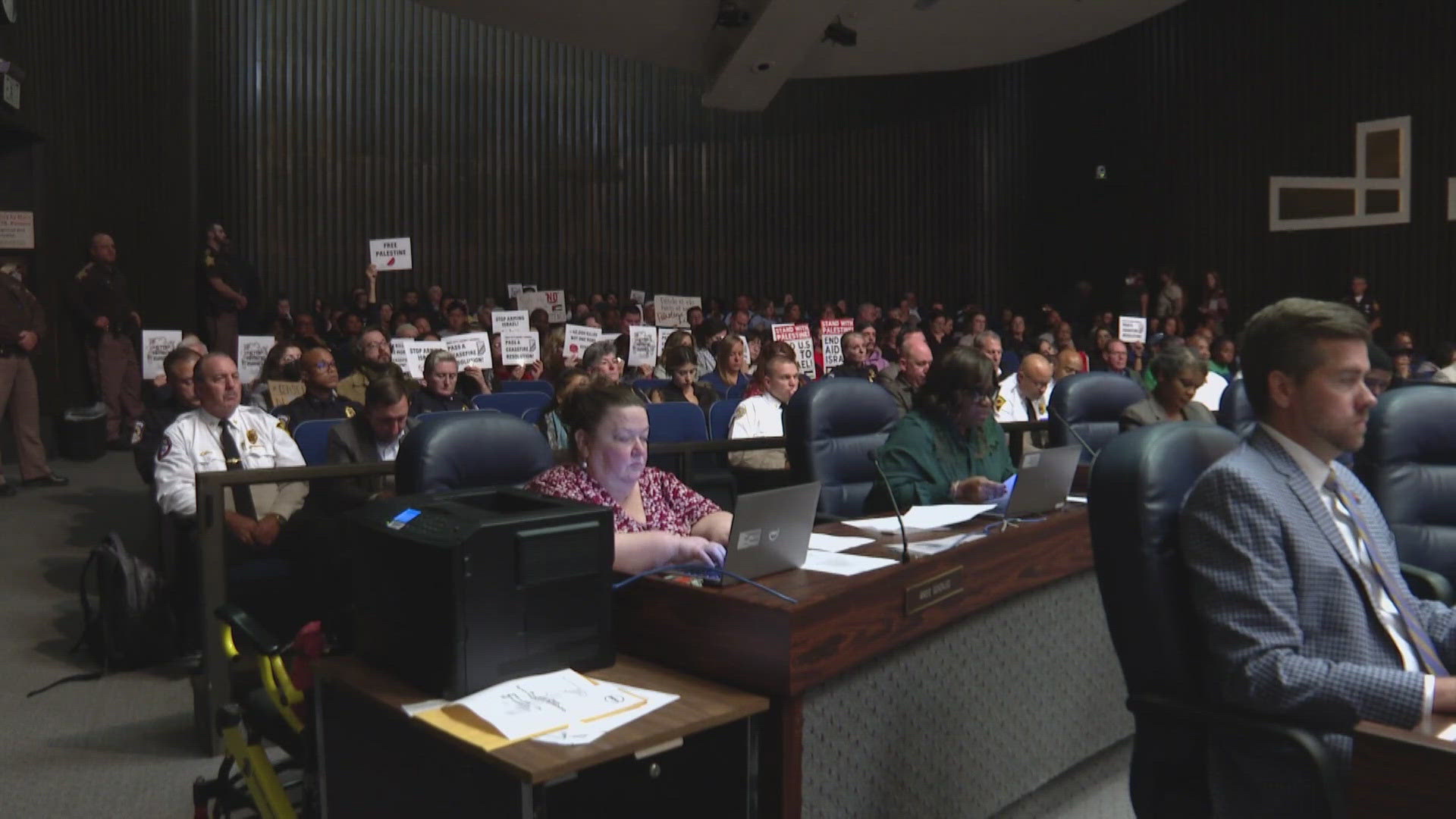INDIANAPOLIS — After years of overwhelming support, the city’s 2025 budget passed Monday but with unprecedented and bipartisan pushback.
Nine councilors voted against the $1.6 billion budget - six Republicans and three Democrats.
- Republican councilors: Paul Annee, Josh Bain, Derek Cahill, Michael Dilk, Paul Hart and Brian Mowery.
- Democratic councilors: Rena Allen, Jesse Brown and Carlos Perkins.
Many of the councilors questioned the budget process and how the funding aligns with the needs of their communities.
“I just think at this point, maybe it's time we try something new. Maybe we need to show that we are not OK with this budget,” said Councilor Josh Bain.
"This body is not just to be a rubber stamp,” said Councilor Derek Cahill.
“What we continue to do doesn't seem to be working,” said Councilor Michael Dilk.
A sticking point for many was the city’s infrastructure. Next year, Indy DPW is set to receive about $246 million dollars, which is a 7% boost compared to this year.


However, some question whether that is enough to fix the city’s roads.
“At the end of the day, I think we need to take a look around at the city. The condition of the roads is just plain bad and this budget locks in the fact that they are going to get worse,” Brown said. “So many streets have no lines on the road to be seen anymore. Huge neighborhoods in my district have no functional sidewalks and the sidewalk budget this year is cut compared to last year.”
Last month, Bain introduced an amendment to reallocate funds to improve roads and bridges, but that amendment failed in committee.
It’s one of the main reasons why all six Republicans voted against the budget this year, something they haven’t done in several years.
"This budget has woefully underfunded things like infrastructure in our city,” Mowery said.
Indy's Black Church Coalition also voiced concern about the budget Monday night, saying it lacks critical funding to improve education, childcare and housing.
It’s why Perkins and Allen went against others in their party and voted no.
“We attempted to slow the budget process down to include some of our priorities but we were unsuccessful. The consequence is that funding for urgent needs did not make it into this budget. There were commitments to fund permanent supportive housing in the housing hub. That is no longer happening. Despite the record number of pedestrians killed by poor infrastructure, there is limited investment in Vision Zero. No investments have been made to tackle the urgent crisis of climate change and no investment to protect public education and universal childcare in Marion County,” Perkins said.
However, 16 councilors disagreed with those concerns and voted in favor of the 2025 budget.
“We all live in this city. We all love this city and we are all working really hard to make it a better place,” said Councilor Brienne Delaney.
Councilor Dan Boots also voted in favor of the budget but suggested the city become more innovative with generating additional revenue.
“I really implore the city to get much more creative on generating revenue or we are going to have a depressing discussion like this every year,” Boots said.
The budget ultimately passed with no amendments from councilors.
Statement from Indianapolis Mayor Joe Hogsett
"I am proud of this Administration's record of strong fiscal discipline and the eight consecutive fully balanced budgets that have now been passed on behalf of Indianapolis neighbors. Despite ongoing labor negotiations and a year of tight revenue growth for the City and County, this 2025 budget shows our support for our employees and the important work they do each and every day to serve residents, as well as continues to fund successful City programs that we know are making Indianapolis a better, safer place for all.”
Mayor Hogsett’s 2025 budget includes funding for public safety, violence reduction, road infrastructure, traffic and pedestrian safety, quality of life and quality of place. The budget will also supports City and County employees through updated collective bargaining agreements currently being negotiated with local labor unions and cost of living adjustments for non-union employees across the enterprise.
You can find more information about the budget by clicking here here.

